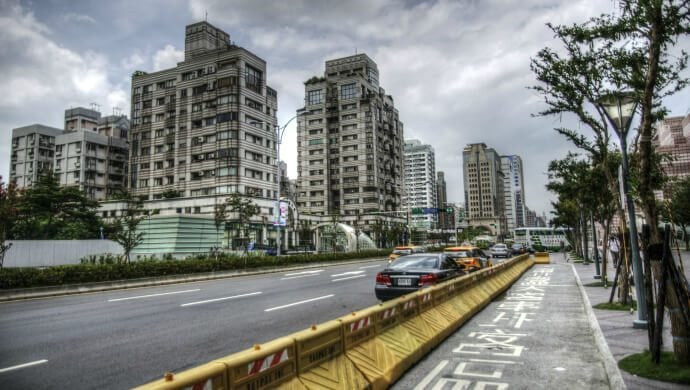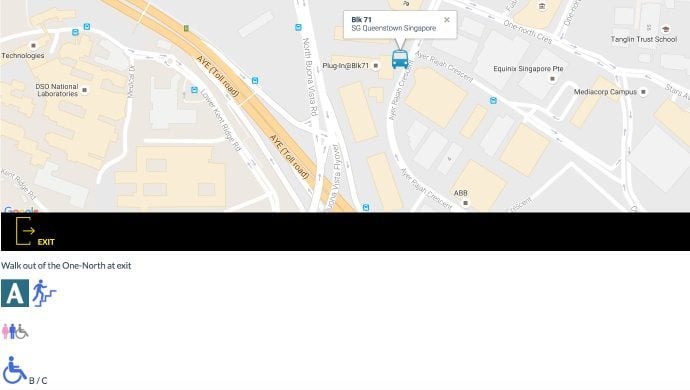THINKTANK is building small products under a big umbrella, and is working in Taiwan, Singapore, Thailand, China, the US and Russia

The drive by government officials across the globe to integrate today’s rapid technological advances into public policy has produced a new buzzword — ‘SmartCity’.
While the word itself has nearly crossed into the realm of ‘political PR schtick’, the policy is redefining how city officials approach infrastructure, community health and safety, as well as economic efficiency.
Sure, driverless cars and fully-automated buses are sexy, headline-grabbing initiatives, but the necessary small changes provide a huge opportunity for the private sector to build interesting and creative products that may catch the eye of an enthusiastic local leader.
One such company is the bootstrapped Taiwanese startup named THINKTANK, a startup currently building a host of products aimed at improving the daily operations of a city. The two products available to the public are a local morale data collector and a hyper-specific public transportation map.
The morale data collecter is called CLAPPIO
In an interview with e27, THINKTANK Founder and CEO Ravi Nataraju explains the company is building an ecosystem of small products under a larger company umbrella. At the moment, it has two available to the public, CLAPPIO and exit.rocks.
“We wanted to make the citizen in the city a ‘Smart Citizen’, make the mayor a ‘Smart Mayor’ and businesses in the city a ‘Smart Business’, and that’s a SmartCity. So, we developed CLAPPIO,” says Nataraju.
Also Read: IoT startup Ayla scores US$39M investment to expand in Japan, China and Taiwan
CLAPPIO is a relatively simple product from the end-user experience, but its value lies in the data it provides government decision makers. Users simply have press ‘smiley’ face or a ‘frowny’ face on the app in their phone and can provide real-time feedback for how a certain situation is proceeding (we imagine a delayed train system may lead to a significant uptick in frowny faces).
Officials will be able to see a broad map of the city, and because the campaign shifts with each individual, they can capture points in the city that may be especially frustrating for local residents on that given day.
For example, the One-North startup hub in Singapore has an infamous jaywalking versus crosswalk problem. As most people exit the trains station and mall in the same location, and the destination tends to be directly across the street people cut the proverbial corner. Why, because to cross the street legally requires a substantial detour followed by an inevitable wait at the stoplight.
(Also, traffic is not nearly bad enough to be a relevant deterrent).
With CLAPPIO, neighbourhood workers would clearly have given the infrastructure a ‘frowny face’ and the Singaporean government could have come in to check it out.
Currently THINKTANK is in talks with a city in France, and Nataraju was optimistic about potential collaboration.
Privacy concerns
The concern that comes to the fore upon hearing the product being pitched is privacy. To willingly provide personal location data to the government is not a proposition most people would find appealing.
“It would be completely anonymous. When you tap the button we don’t carry any of your personal data to our database. At all. So even if we got hacked one day, all [the hacker] would see is zeroes and ones and nothing related to the user at all,” says Nataraju.
In the grand scheme of things, this anonymity is important for a civilian’s willingness to use the app.
It also may have helped THINKTANK stumble into a surprising customer base: private enterprise.
“Let’s say I come to your office, e27, the [CLAPPIO] campaign will change itself to ‘e27‘…If I was waiting at e27, and if I did not get a good reception then I would start tapping [frowny face] on the menu. Or, if I did get a really good response, and my meeting was going fine, I would start clapping [smiley face],” said Nataraju.

Nataraju elaborates that business owners say it is something that could help immensely in a corporate meeting. If a presentation is not going well (specifically if it is given by the CEO or another Big Boss), this type of feedback can lead to a pivot during a meeting so important problems don’t get missed because employees do not feel comfortable speaking their mind.
“The business owner has no idea if the plan they are proposing is the plan the employees want to take. People can, in real-time, say they don’t think this strategy will work. I could then say, ‘Guys, I do not think I am properly communicating with you, let me explain,’” says Nataraju.
The idea behind CLAPPIO is, for both business and government, to will help leaders discover pain points in ‘user experience’ that may have previously gone unnoticed because they don’t demand a huge outcry, but remain problems nonetheless.
Exit.rocks
One pain point CLAPPIO may inevitably unearth is the mess of humanity that is most public transit stations. A major contributor to this problem is that most people, even locals, often have no idea which is the best route in an unfamiliar station.
Sure, I can autopilot my way to my apartment and work, but meeting a friend for lunch at a new hip café? Even lifelong residents have to check the map to find the ideal exit.
Introduce more serious complications, like a permanent disability or an injury requiring a lift, and stations across the world become a bustling ant hill with no rhyme or reason.
Exit.rocks is here to solve that problem.
“If you are a disabled person and the nearest exit does not have disability access, we show you which exit does. We also show other features such as escalators, elevators and which is nearest to the toilets,” Nataraju explains.
Also Read: WritePath bags six-figure funding from leading Taiwanese media group UDN
According to the company’s pitch deck, the service works in Taipei and Kaohsiung (Taiwan), Singapore, Moscow (Russia), Fukuoka (Japan), Bangkok (Thailand), Beijing and Shanghai (China), and New York City (US).
Exit.rocks — again — is a rather simple solution from the end user’s experience, but one that neither Apple nor Google have managed to integrate into their mapping apps.
The below screenshot is an example:
 THINKTANK plans to generate revenue through targetted advertising and signing agreements with governments.
THINKTANK plans to generate revenue through targetted advertising and signing agreements with governments.
In the picture above, the black space after ‘EXIT’ is a perfect spot for a banner ad, and one that can be adapted to the user’s specific location.
There is no point for Marina Bay Sands to buy an ad for the Block 71 location, but the local KICK Café could benefit quite a bit as it tries to compete with the Starbucks a few blocks away.
For licensing agreements, Exit.rocks and CLAPPIO are part of a plan to build an entire ecosystem. In Japan, THINKTANK is helping with the Tokyo 2020 Olympics; in France, it is helping build Smart Culture; the Singapore Tourism Board made a request to help with Smart Tourism; and in China, THINKTANK is working to improve supermarkets.
Also Read: Rakuten’s Rakuma goes all-out for Taiwan expansion, appoints country manager
If THINKTANK has the good year Nataraju said he is hoping, “THINKTANK is in the DNA of all the governments in the world”.
Because, except for the overhead of hiring additional employees, CLAPPIO or exit.rocks are not restricted by borders and can be deployed relatively quickly.
“If you ask me what is CLAPPIO, it is Pokémon Go plus Smart Cities. We have no border restrictions at all and it can be triggered in minutes. All the government needs to do is give us the cheque and we’ll trigger it in a minute and it will be fine”.
—
Feature photo courtesy of Pixabay. Interior photos are THINKTANK screenshots.
The post Taiwan’s THINKTANK aims to build smart cities, brick by digital brick appeared first on e27.